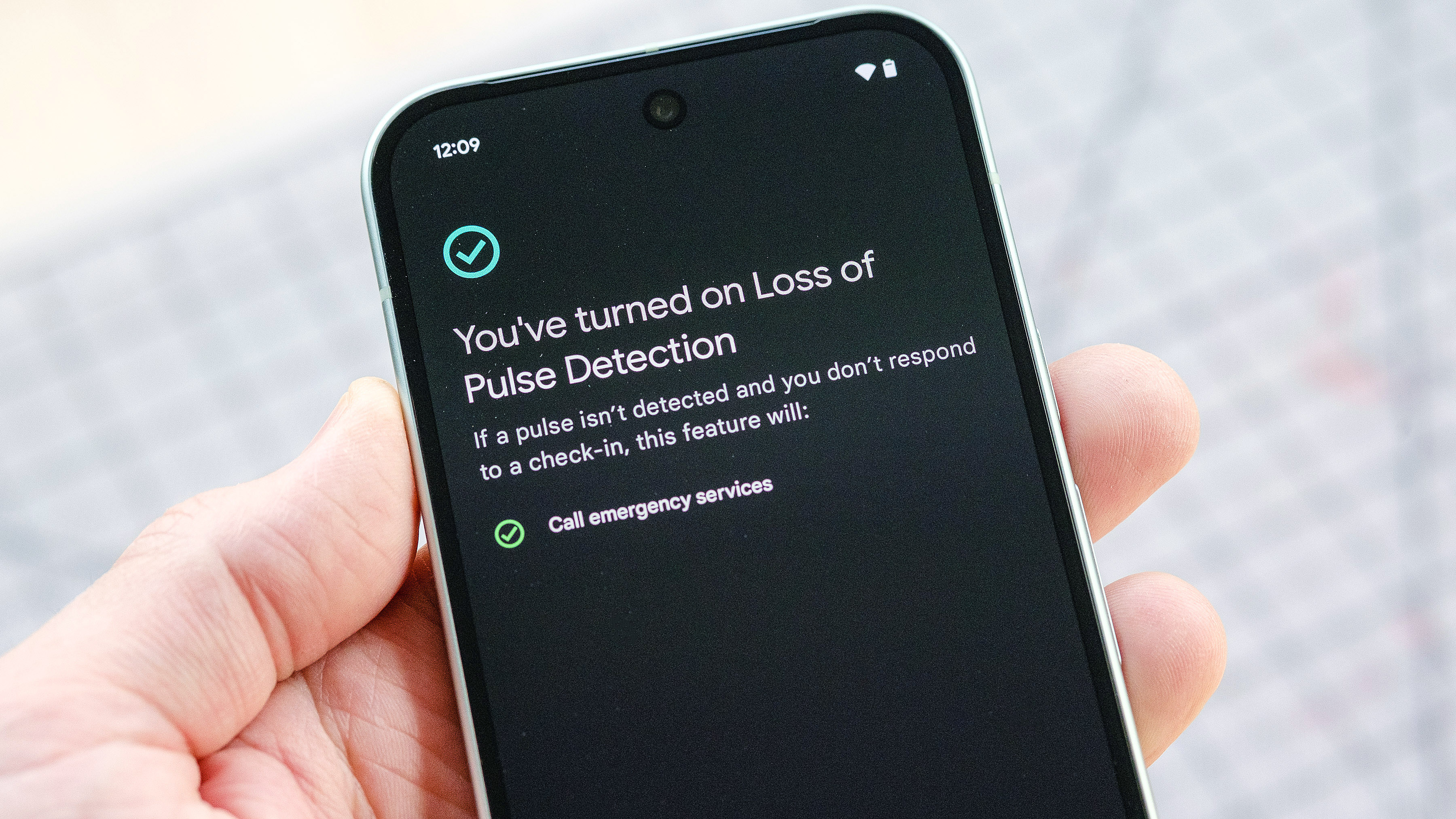I tried mouth taping for better sleep — here’s what happened
Our team tried Hostage Mouth Tape to help us sleep, but it did the opposite
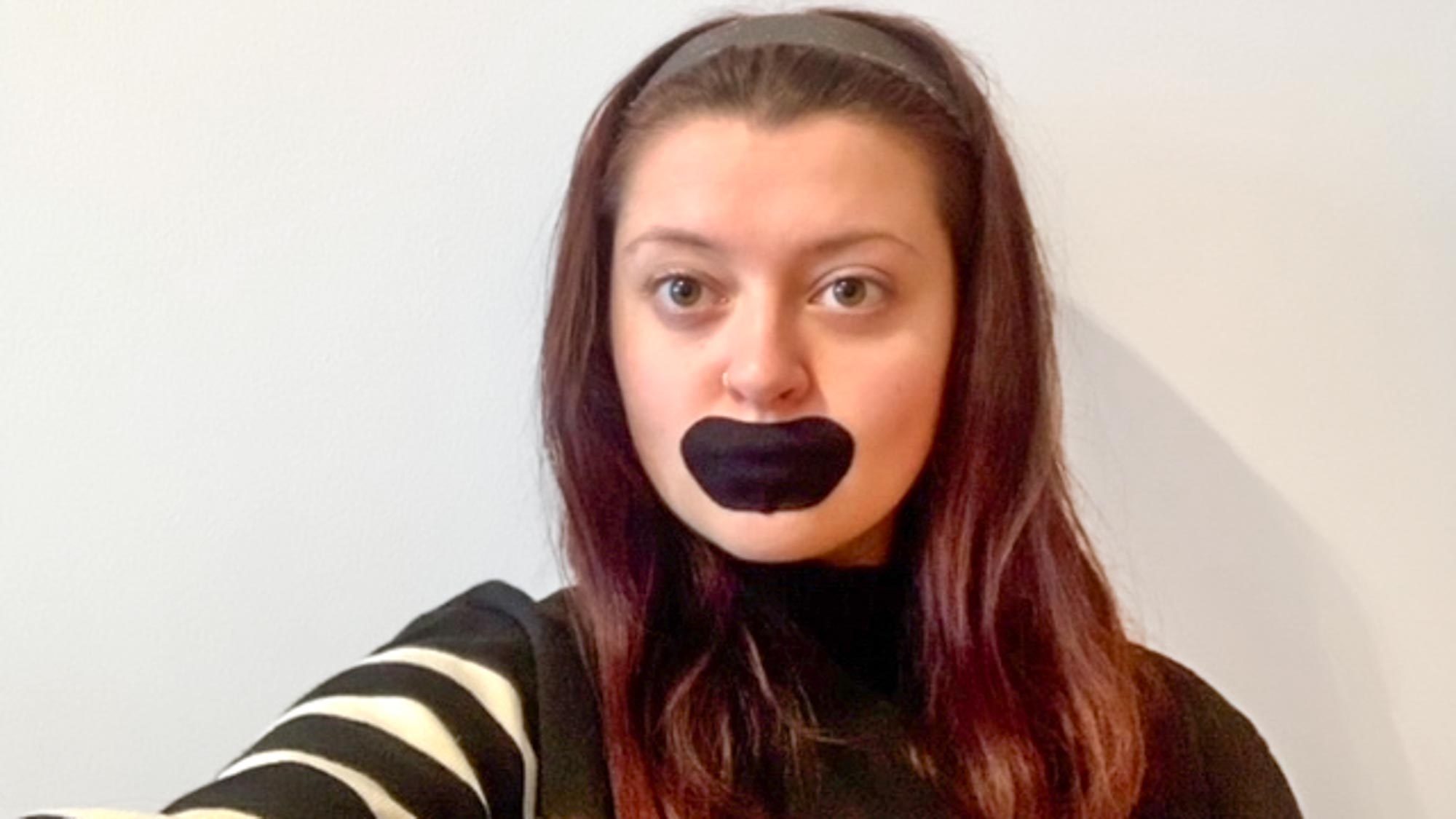
Mouth tape has recently gained traction as a method to help you sleep better. Along with other viral sleep hacks that usually surface on TikTok, mouth tape brands promise deeper, more restful sleep, snoring prevention and a host of other health benefits.
While there are plenty of research-backed methods that can deliver all of the above, like investing in one of this year’s best mattresses and improving your sleep hygiene, it’s mouth taping that’s become increasingly popular.
It’s important to note that the science behind this method is lacking, but thousands of people swear by it. So, the Tom's Guide sleep team and I decided to put it to the test and documented our experience, from the lows to the (very few) highs.
What are the benefits of mouth taping?
While the proven benefits of using mouth tape are next to nothing, there are scientific benefits of breathing through your nose, rather than your mouth.
Breathing through your nose at night can help:
- Filter allergens and debris in the air before they reach your lungs
- Make the air humid and keep your throat and mouth moist
- Lessen the chance of snoring
Whereas mouth breathing can lead to the following complications:
- Asthma
- Bad breath
- Tooth decay
- Snoring
- Allergic reactions
So, mouth taping seems like a good solution. It forces you to breathe through your nose and makes it impossible to switch to mouth breathing in the middle of the night.
However, very limited studies have been done and most results have been inconclusive. The only conclusive evidence is that mouth taping can sometimes help in some cases of sleep apnea and snoring.
Our first impressions of Hostage Mouth Tape
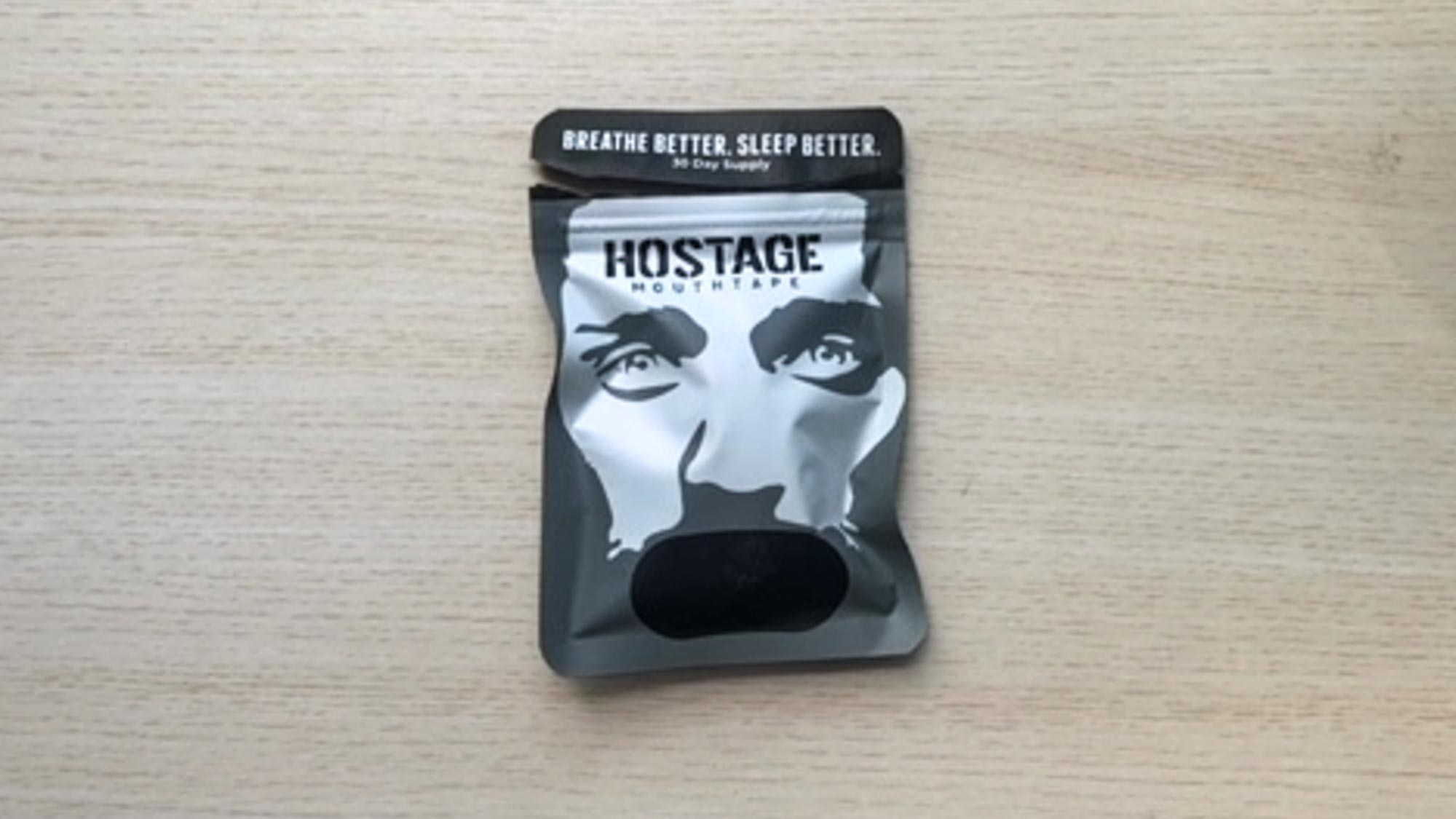
The thought of taping your mouth shut is already anxiety-inducing, add in branding that’s centered around the idea of being held hostage, and it’s enough to make anyone panic.
The package was designed like a ‘mission card’, broken down into boxes like materials, instructions, amount, and product. When the team received it, we were all laughing and joking until we turned it over and saw the caution box.
Here, we’re warned not to use the tape in a long list of different scenarios … Having a cold, being overweight, having chapped lips, and drinking alcohol are just some of the things that will exclude you from being able to use Hostage Tape.
After this list is a further warning that simply reads, “Seriously, don’t do it.”, that led us to question whether trying this tape was safe at all.
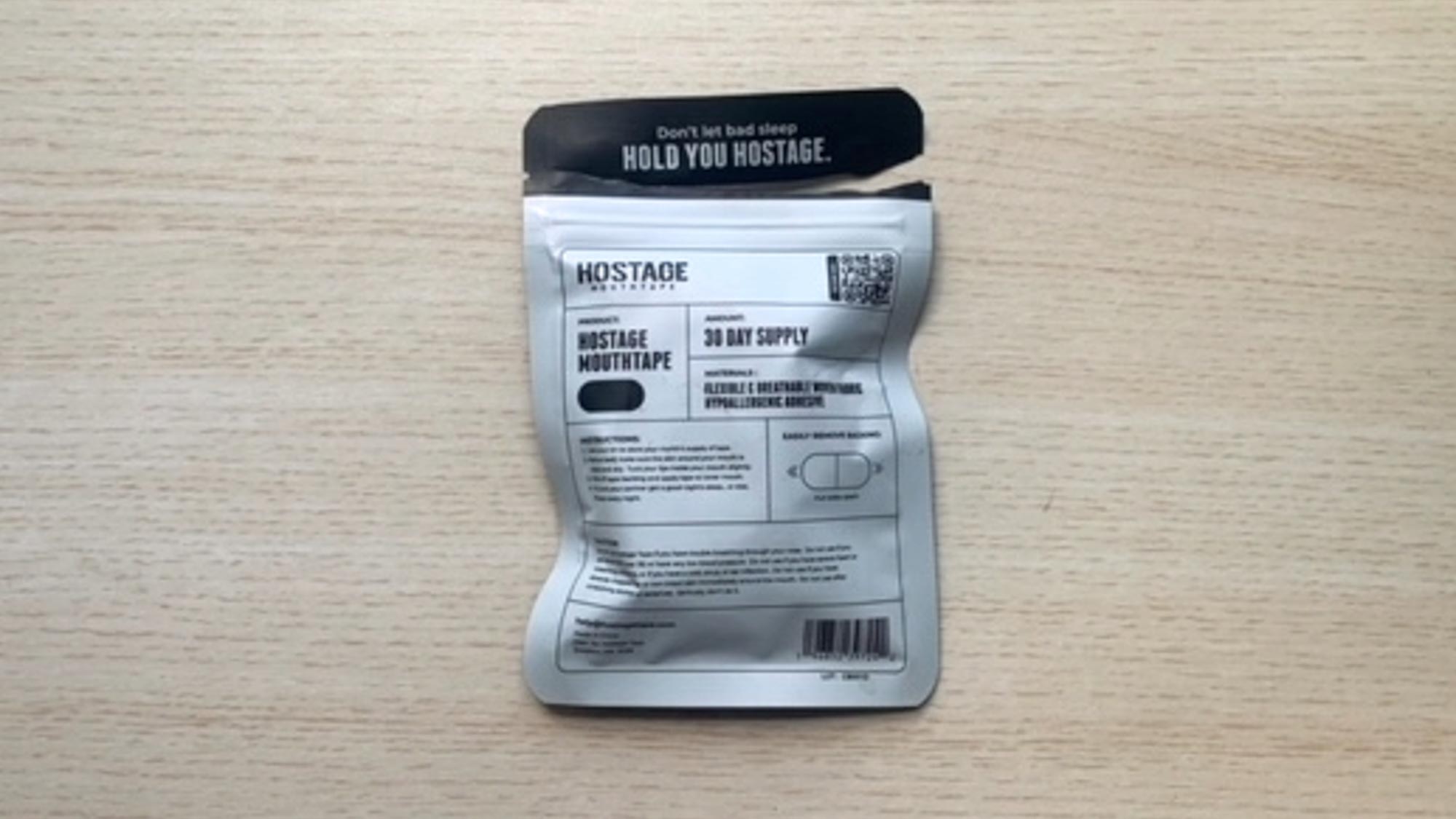
My first night using mouth tape for sleep
For me, the first night of using Hostage Tape went pretty smoothly. After the initial heart-pounding anxiety after I’d taped my mouth shut and signed to my partner to turn the light off, I drifted off to sleep fairly quickly.
I found that because I had no option to talk or breathe through my mouth, my brain switched off and I was able to sleep soundly. I woke up the next morning well-rested, and ready for the day. But when I went to take it off, things started to turn sour.
Prying and pulling the unbelievably sticky tape from the sensitive skin around my mouth was eye-wateringly painful and frustrating. I eventually got it off, and headed to work. Only when I arrived at the office did I notice the black sticky residue all around my mouth.
The team's experience using mouth tape for sleep
I have to admit, I think I got off lightly. When my team shared their experiences, horror stories of panic, anxiety, and dangerous coughing fits were the main theme.
Ruth Jones, a Sleep Writer for Tom’s Guide, said “even when I drifted off breathing comfortably through my nose, after a few hours of sleep I inevitably woke up feeling anxious, panicked, and, on one terrible occasion, stuck in a thwarted coughing fit.”
Despite persisting and trying Hostage Tape for a week, Ruth says she “never slept through an entire night without pulling it off my face in a panic.”
She also noted that “because my mouth was covered, I couldn't turn to the calming breathing techniques I normally use to ease anxiety.” This is an important consideration for those who rely on breathing techniques, like the 4 7 8 method, to help them drift off.
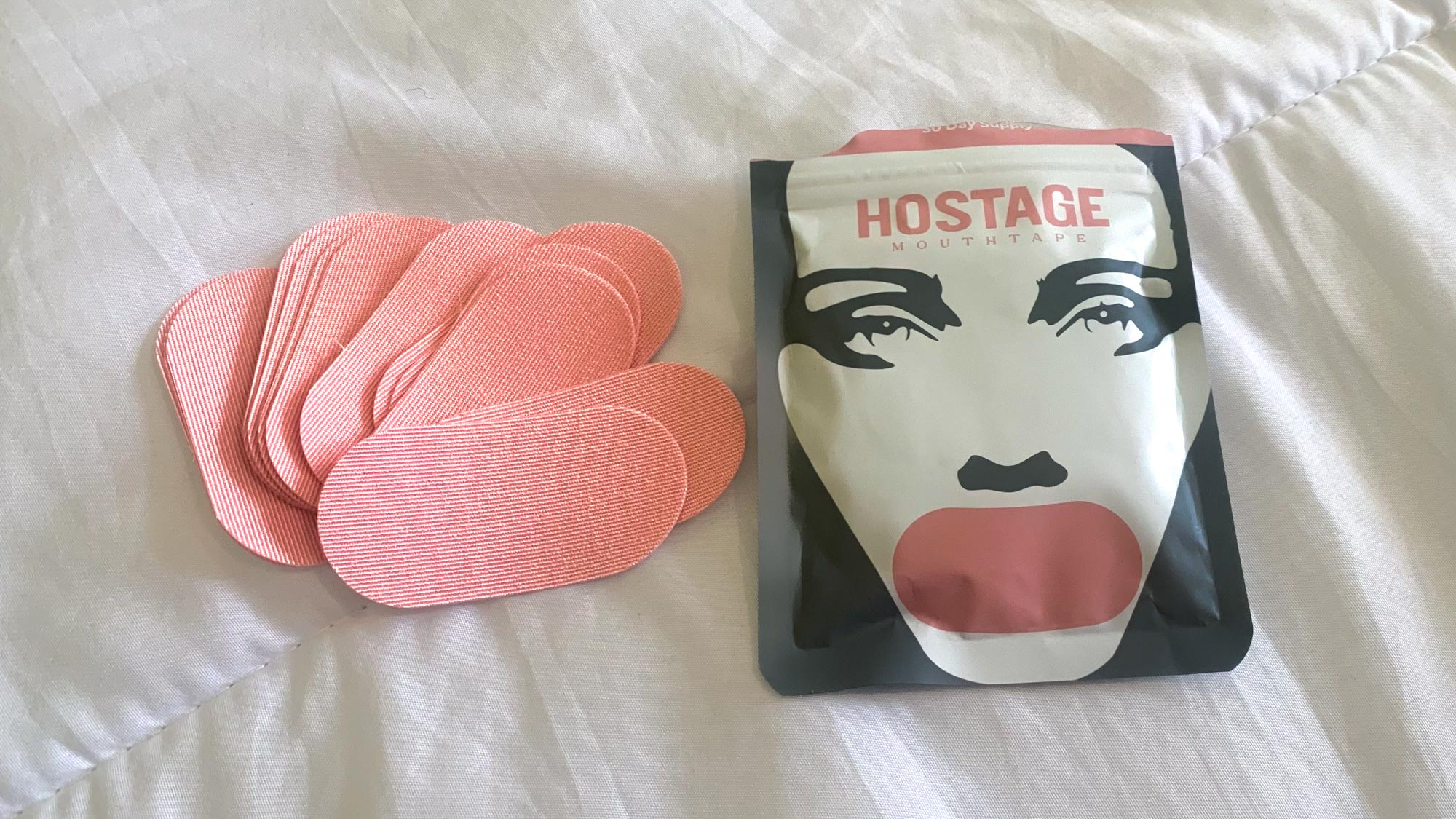
For Nicola Appleton, Sleep Editor for Tom's Guide, it was too much even to try. Despite usually testing any new sleep hack and wanting to give mouth taping a go, she said "that changed when the hostage tape actually arrived on my desk. In reality, the idea of taping my mouth closed made me feel anxious and claustrophobic."
Nicola's main concern was using the tape with a stuffy nose. She noted that "the Hostage Tape website says that your nose is a natural alarm and that if your oxygen levels drop too low your nose will wake you up."
However, "it also says on the back of the packet not to use Hostage Tape if you have any nasal congestion. So, no — this is not a sleep hack I'm willing to try." Nicola concludes.
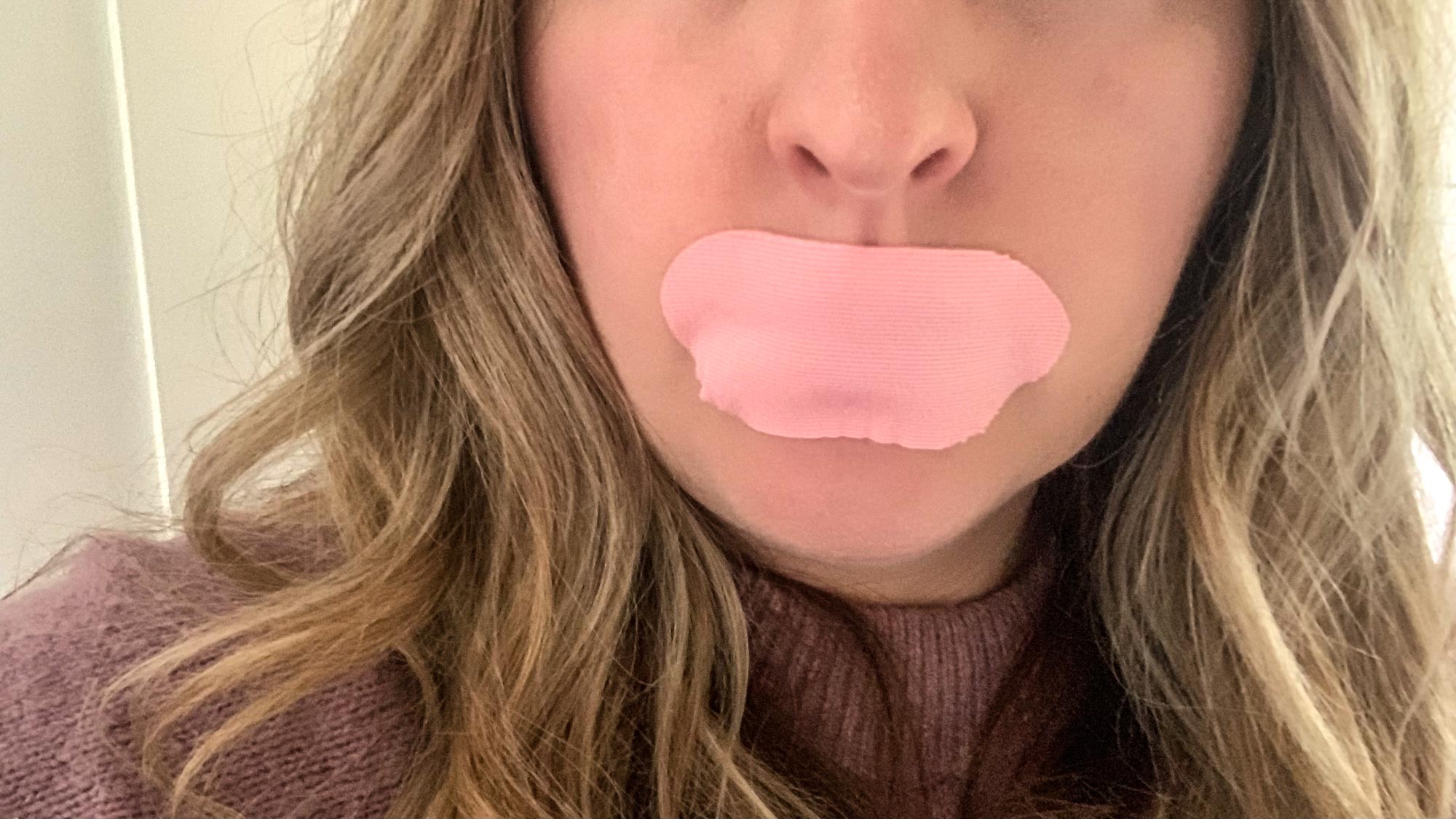
For Claire Davies, Senior Sleep Editor and Certified Sleep Science Coach for Tom's Guide, pre-bed anxiety wasn't the issue. She says “I didn’t experience any anxiety over having my mouth taped initially, but I did when I woke up in the middle of the night; it sent my heart racing and I sat bolt upright to rip the tape off my mouth."
However, persistence seemed to be key, as Claire observed that "this eased on the second and third night..." although she concluded that "generally I’ve discovered that I don’t like waking up with tape over my mouth. Although falling asleep with it is easy."
How my sleep changed after mouth taping
After using the tape for a week, there were a few things I noticed. Firstly, I fell asleep quicker than I usually would. Once I had calmed the initial anxiety, the inability to do anything but lie there and breath through my nose meant I drifted off quicker than usual.
Claire also found she was falling asleep faster than usual, saying she "found it relaxing breathing through my nose only and the tape definitely facilitated that. (But I also had zero nasal congestion at that time – I would not try mouth taping with a cold.) And because I was relaxing very quickly, I fell asleep quickly too."

After the first night, similarly to Ruth, I woke up having taken the tape off in the night. For the brief time it was on, I didn’t notice any changes in the quality of my sleep, my partner said I still snored, and my throat and mouth felt the same.
Does mouth tape work?
We wouldn’t recommend mouth tape. Claire adds that "there are too many disclaimers attached with mouth taping for me to feel confident in recommending it as a healthy sleep tool for others to try."
“There are also potential dangers as mouth tape in someone vomiting could be life-threatening," Dr Chris Winter MD, a sleep health expert, said.
We did reach out to a representative from Hostage Tape for a comment on their experience, and they said "It’s been transformative for my overall health and well-being, I wake up feeling well rested, less anxious and excited to start my day!"
For our team, it didn’t deliver on the promises it made and it caused multiple disturbed night’s sleep, lowering our overall quality of sleep. Maybe you’ll see some reduction in snoring and less potent morning breath, but that’s if you can even keep it on all night long.
This, along with the lack of scientific evidence behind mouth taping, means you should probably avoid it. There are plenty of other ways you can promote breathing through the nose without going to the extremes of taping your mouth shut.
How to get better sleep without mouth tape
Try nasal strips
Nasal strips have been scientifically proven to lower nasal resistance, allowing easier oxygen flow and breathing. Rather than obstructing types of breathing, like the mouth tape which inevitably leads to dangers, these strips stick to your nose and pull the airways open.
This will decrease the likelihood of snoring and mouth breathing at night, meaning you can reap the benefits of nose breathing without the anxiety of taping your mouth. My partner and I have tried the Breathe Right Extra Strong Nasal Strips and have found they are incredibly effective, preventing snoring and making nose breathing easier.
Choose the right pillow
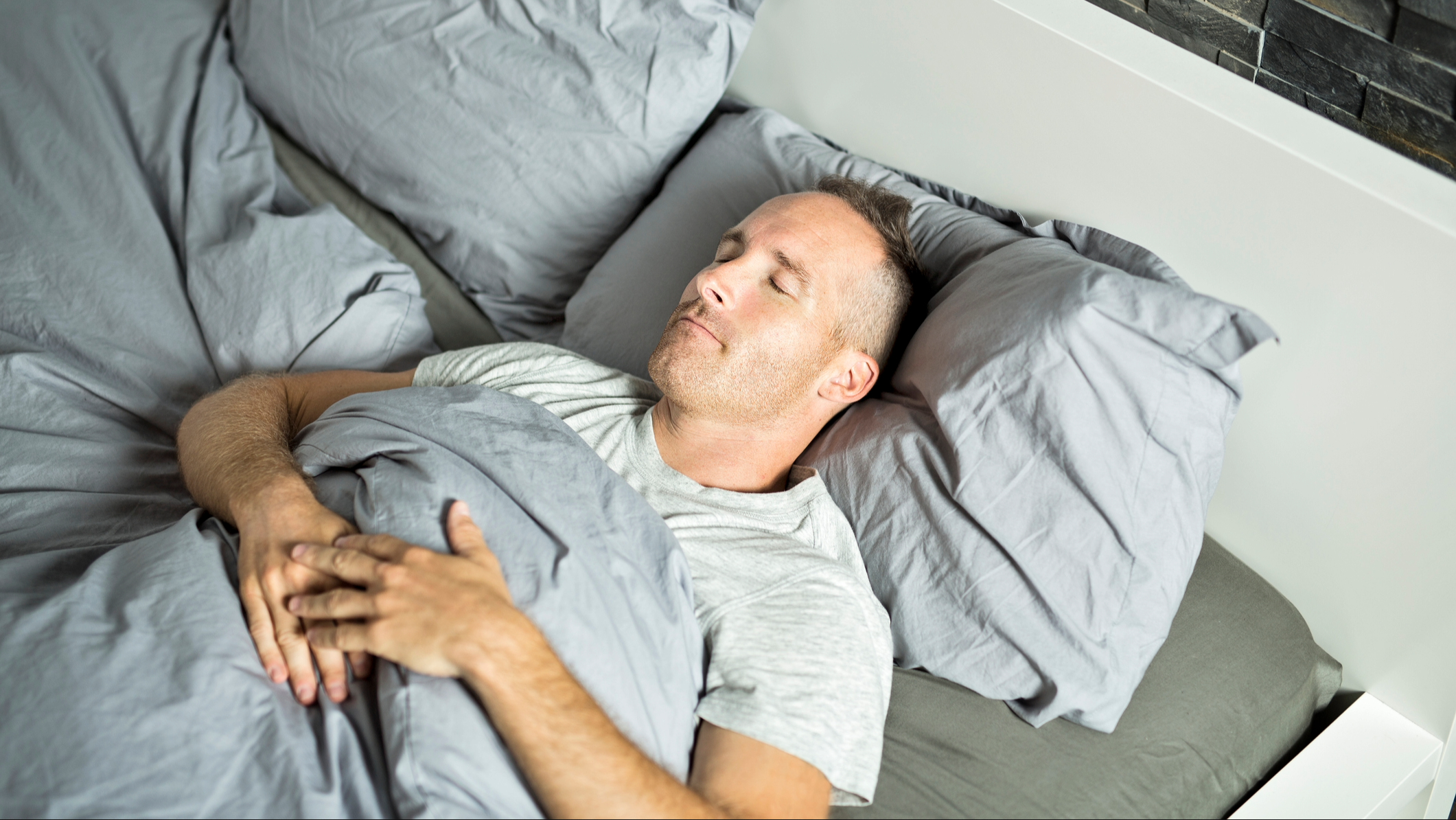
Choosing the best pillow for your needs can have a huge impact on the quality of your sleep and the way you breathe at night.
For example, if you’re a back sleeper, then a lower loft pillow will align your spine, neck, and shoulders correctly, leading to a more natural mouth and jaw shape when you sleep. This makes it less likely that you’ll sleep with your mouth open.
Perfect your nighttime routine
Your nighttime routine can have a big impact on the way you sleep and the quality of sleep you’re getting. If you experience nasal congestion, especially during allergy seasons, then taking a warm bath or hot shower before you go to sleep is recommended.
This can loosen the congestion and clear your sinuses, making it easier to breathe through your nose at night. Alongside this, you can try taking a nighttime decongestant or sleeping with a humidifier next to you.
Sign up to get the BEST of Tom's Guide direct to your inbox.
Get instant access to breaking news, the hottest reviews, great deals and helpful tips.
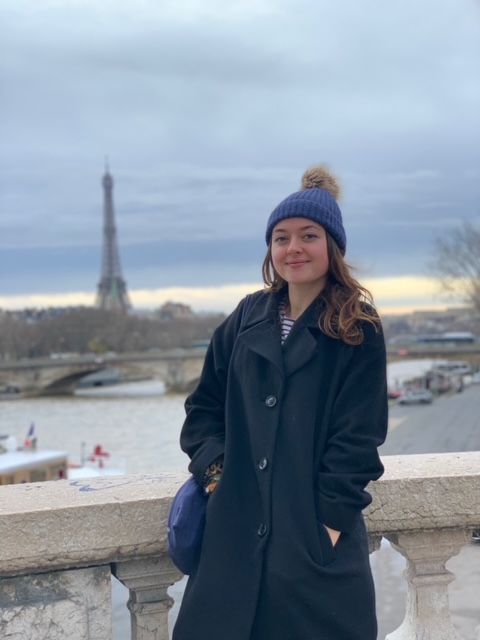
Lauren is an experienced writer and editor in the health and lifestyle industry and has led many campaigns and projects that deliver news, advice, and research on all things sleep. As the Sleep Features Editor for Tom’s Guide, Lauren writes, commissions and edits sleep and mattress content, from in-depth how-tos in sleep and mattress health to interviews with doctors and neuroscientists on the latest news in sleep. Lauren regularly tests new sleep tech and accessories to evaluate their effectiveness for getting good quality sleep and easing specific sleep struggles like nighttime anxiety. Alongside this, Lauren reports on the best mattress brands out there, like Helix, Saatva, and DreamCloud, helping readers find the right mattress for them and the best deals on them.
-
guraldunix I just can't help but think someone somewhere is going to asphyxiate using this thing, either due to an undiagnosed condition or any number of reasons.Reply
In any mission critical function (I should hope breathing qualifies as such), redundancy is one of the most important, if not the most important, pillars of reliability and resiliency.
What you're doing here is removing the redundant passage for air into your lungs and essentially flying on a prayer.
